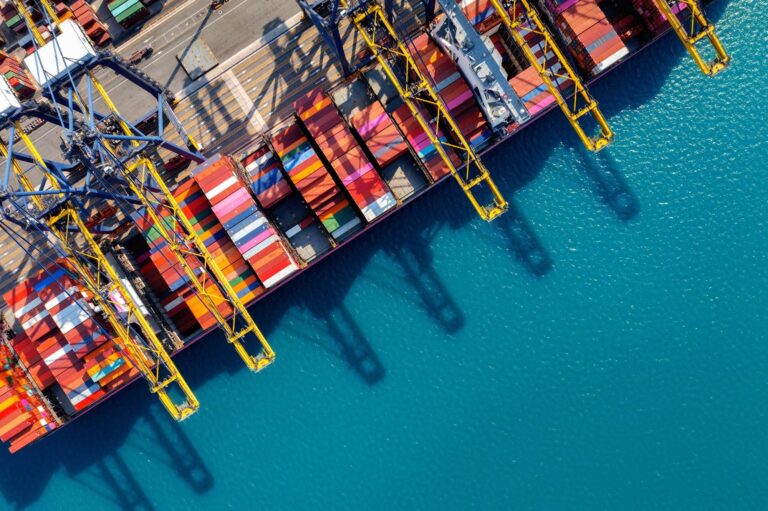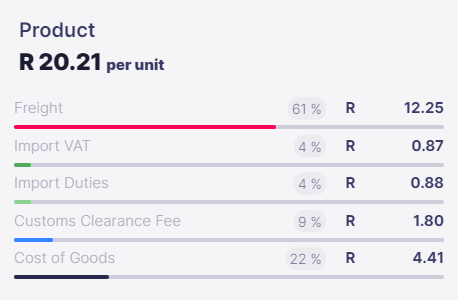
If you’re running an online store, you know exactly how important it is to maintain agility and resilience across your supply chain, right? But let’s be honest – that’s easier said than done.
With inflationary pressures, climate-related disruptions, shifts in consumer behaviour, and growing geopolitical tensions, such as the ongoing Russia-Ukraine conflict and rising tensions between Israel and Palestine, supply chains have become more fragile and unpredictable than they’ve ever been before.
With this in mind, there has been a growing demand for air freight transportation. In 2020, air freight revenues surged by 27.2% to reach a record high of USD 128.2 billion and projections indicate that the volume of goods transported by air is expected to more than double by 2035.
Let’s break down exactly why air freight significantly enhances the agility of your supply chain and why so many businesses are opting for it.
Aeroplanes outpace other transportation methods by cruising at speeds around 900 kilometres per hour – way faster than sea or land travel. So, if you’re selling urgent items like medical supplies or the latest trendy products that have to reach the other side of the world ASAP, choosing air freight means they’ll arrive in no time compared to other transportation options.
Air freight services enable businesses to swiftly meet customer needs and rapidly adapt to market changes, granting them a competitive edge in the global economy.
Airports take security extremely seriously. Everything is highly regulated and closely managed, which is great news for you as a small business owner, because it means you don’t have to lose sleep wondering if your shipments will end up damaged or stolen. Your customers will get their goods safe and sound, no worries about damage or theft in transit.
Flights operate on strict schedules and are less impacted by weather, traffic congestion, or customs hold-ups. They also make fewer stops and transfers, which once again reduces the chances of your goods getting lost or damaged along the way.
Based on research conducted by the World Bank, air freight has an average reliability rate of 98%, whereas sea freight maintains a rate of 77% and road freight lags behind at 40%. Choosing air freight means your goods arrive punctually and in great condition, giving you a leg up in boosting customer satisfaction and loyalty.
When it comes to shipping small and light items, air freight can be quite cost-effective for your business since transportation costs can be spread out among multiple shipments, letting you consolidate several small ones into a single larger shipment.
Usually, air freight works best when shipping costs stay below 15-20% of your goods’ total value. And if your items are on the lighter side, you can always use a chargeable weight calculator to help you determine how shipping costs are calculated – whether it’s based on weight or package size. This way, you can plan your shipping expenses better and keep your business budget on track.
Air freight transport opens doors to a global market that other transport methods can’t match. With frequent flights connecting major airports worldwide, it’s your ticket to exploring new markets and growing your business’s global footprint.
This global reach also allows for easier adjustments in sourcing, production, and distribution, which ensures a more agile response to changes in consumer preferences, market trends, or any unforeseen disruptions.
With air freight, you can nail tight deadlines, ensure consistent deliveries, and broaden your market footprint. Just remember, when choosing an air freight partner, you’re looking for a provider you can actually count on. In other words, they should offer reliable services, comprehensive tracking capabilities, and stellar customer support – all of which (ahem) we guarantee here at Airpool.
We’ll get your customers’ goods to their doorsteps quickly and efficiently, no matter what’s happening around the world. If you’re interested in working with us or you’re just curious about air freight, hit us up anytime.
Landed cost is the sum of all expenses associated with importing your goods from China to South Africa. This includes the cost of the goods paid to your supplier, the shipping costs, clearance costs and the import taxes & duties.
It is represented on a per unit cost and helps you with:
Note: This is not what you are paying to Airpool but rather what you are paying to all the suppliers and relevant parties: Airpool, the Manufacturer of the goods and the Import Taxes (VAT & Duties)
